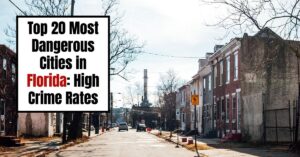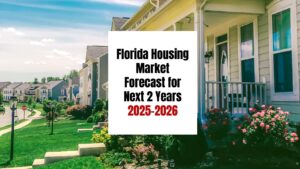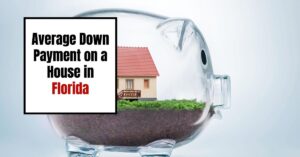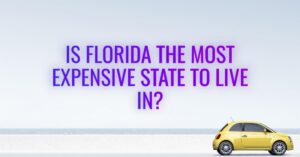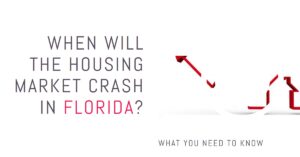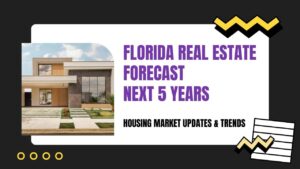Florida, the Sunshine State, is renowned for its beautiful beaches, vibrant culture, and warm weather. However, beneath its sunny facade, Florida also grapples with a significant crime problem, particularly in certain cities. This report is about the top 20 most dangerous cities in Florida, analyzing their crime rates and exploring the factors contributing to their high crime index. Understanding these trends is crucial for residents, tourists, and policymakers alike.
Methodology and Data Source
The data used to rank these cities comes from USA.com, that compiles and analyzes crime statistics. They utilize a complex algorithm to calculate the crime index for each city, which is a numerical representation of the relative crime rate. A higher crime index indicates a higher likelihood of criminal activity. We will use this data to identify the cities with the highest crime indexes and provide a detailed analysis of their crime rates.
Top 20 Most Dangerous Cities in Florida: Crime Index and Analysis
Below is a list of the top 20 most dangerous cities in Florida, based on their respective crime indexes as of 2023:
| Rank | Crime Index | City / Population |
|---|---|---|
| 1 | 14,056 | Mangonia Park, FL / 1,758 |
| 2 | 12,200 | Medley, FL / 940 |
| 3 | 7,485 | Opa Locka, FL / 15,867 |
| 4 | 7,322 | Florida City, FL / 11,853 |
| 5 | 6,011 | Cocoa, FL / 17,261 |
| 6 | 5,225 | Belle Glade, FL / 17,785 |
| 7 | 5,034 | Eatonville, FL / 2,258 |
| 8 | 4,698 | Riviera Beach, FL / 33,123 |
| 9 | 4,614 | Miami Beach, FL / 90,669 |
| 10 | 4,607 | Madison, FL / 2,976 |
| 11 | 4,537 | Bunnell, FL / 2,715 |
| 12 | 4,520 | Lake Park, FL / 8,317 |
| 13 | 4,501 | Lake City, FL / 12,059 |
| 14 | 4,414 | Orlando, FL / 250,224 |
| 15 | 4,387 | Fort Pierce, FL / 42,744 |
| 16 | 4,383 | Lake Worth, FL / 35,903 |
| 17 | 4,373 | Daytona Beach, FL / 61,913 |
| 18 | 4,356 | Palatka, FL / 10,464 |
| 19 | 4,332 | Chiefland, FL / 2,301 |
| 20 | 4,294 | Mulberry, FL / 3,864 |
Understanding the Crime Index: A Deep Dive into the Data
1. Mangonia Park, FL (Crime Index: 14,056)
With the highest crime index in Florida, Mangonia Park is a small town with a population of just over 1,700 people. The high crime rate can be attributed to a combination of factors, including:
- High poverty rate: A significant portion of the population lives below the poverty line, leading to social and economic vulnerabilities.
- Limited job opportunities: The lack of employment opportunities can drive residents towards criminal activity as a means of survival.
- Drug trafficking: The town's proximity to major highways makes it a hub for drug trafficking activities.
2. Medley, FL (Crime Index: 12,200)
Medley is a small municipality with a population of around 940. Its high crime index is primarily driven by:
- Property crime: Thefts, burglaries, and vehicle theft are prevalent in Medley, contributing significantly to the overall crime rate.
- Gang activity: The presence of gangs has been a major factor in the town's elevated crime levels.
- Lack of resources: Limited police resources and a shortage of social services have hampered efforts to combat crime.
3. Opa Locka, FL (Crime Index: 7,485)
Opa Locka is a city located in Miami-Dade County, known for its high crime rate. The key factors contributing to this include:
- High poverty and unemployment: Economic hardship is a major driving force behind crime in Opa Locka.
- Gang violence: The city has a long history of gang activity, which has resulted in frequent shootings and other violent crimes.
- Lack of community investment: Limited investment in education, social services, and community development has hampered efforts to address the root causes of crime.
4. Florida City, FL (Crime Index: 7,322)
Located in Miami-Dade County, Florida City has a high crime index, with property crime being the most prevalent type. The city's challenges include:
- Proximity to Miami: Its proximity to Miami's urban areas exposes Florida City to spillover crime.
- Lack of economic opportunities: Limited job availability and a high poverty rate contribute to criminal activity.
- Drug-related crime: Florida City has a significant drug problem, which is often linked to violent crime.
5. Cocoa, FL (Crime Index: 6,011)
Cocoa, a city located on Florida's Space Coast, has a higher than average crime rate, mainly due to:
- Drug trafficking: The city's proximity to major ports and its location on a transportation corridor makes it vulnerable to drug trafficking activities.
- Property crime: Thefts and burglaries are common in Cocoa, contributing significantly to the crime index.
- Lack of affordable housing: The lack of affordable housing options can lead to homelessness and crime.
6. Belle Glade, FL (Crime Index: 5,225)
Belle Glade, located in the heart of the Everglades, has a high crime index. Factors contributing to this include:
- High poverty rate: Belle Glade has one of the highest poverty rates in Florida, leading to social and economic instability.
- Limited job opportunities: The lack of employment opportunities in the area contributes to a higher crime rate.
- Gang violence: Gang activity has been a persistent problem in Belle Glade, leading to violent crime.
7. Eatonville, FL (Crime Index: 5,034)
Eatonville, located near Orlando, is the oldest incorporated African American municipality in the United States. The city's high crime rate is attributed to:
- Poverty and unemployment: Limited economic opportunities and a high poverty rate drive criminal activity.
- Lack of investment: Eatonville has struggled with a lack of investment, leading to dilapidated infrastructure and poor social services.
- Drug-related crime: Drug trafficking and related crimes are prevalent in the city.
8. Riviera Beach, FL (Crime Index: 4,698)
Riviera Beach, located on Florida's Atlantic coast, has a high crime rate due to:
- High poverty rate: The city has a significant poverty rate, leading to social and economic challenges.
- Drug trafficking: The city is a hub for drug trafficking activities, contributing to a high crime rate.
- Limited police resources: Riviera Beach has faced challenges with police funding and staffing, hindering crime prevention efforts.
9. Miami Beach, FL (Crime Index: 4,614)
Miami Beach, a world-famous tourist destination, has a high crime index, particularly for property crime. The contributing factors include:
- Tourism: The large number of tourists attracts opportunistic criminals.
- High cost of living: The high cost of living can lead to financial stress and drive some to resort to criminal activity.
- Lack of affordable housing: The lack of affordable housing options contributes to homelessness and crime.
10. Madison, FL (Crime Index: 4,607)
Madison, a small town in North Florida, has a high crime index for its size. The key factors contributing to this include:
- Drug-related crime: Drug trafficking and related crimes are prevalent in Madison.
- Lack of job opportunities: The lack of employment opportunities in the area can lead to crime.
- Limited resources: Madison has limited police resources and social services, impacting its ability to combat crime.
11. Bunnell, FL (Crime Index: 4,537)
Bunnell, located in Flagler County, has a high crime index, primarily due to:
- Drug-related crime: Drug trafficking and related crimes are a significant problem in Bunnell.
- Property crime: Thefts and burglaries are common in the city.
- Lack of economic development: Limited economic opportunities and a high poverty rate contribute to crime.
12. Lake Park, FL (Crime Index: 4,520)
Lake Park, located in Palm Beach County, has a high crime index, with property crime being a major concern. Factors contributing to this include:
- Proximity to West Palm Beach: Its proximity to a larger urban area can lead to spillover crime.
- High cost of living: The high cost of living can lead to financial stress and drive some to resort to criminal activity.
- Lack of affordable housing: The lack of affordable housing options contributes to homelessness and crime.
13. Lake City, FL (Crime Index: 4,501)
Lake City, located in Columbia County, has a high crime index. The contributing factors include:
- Drug-related crime: Drug trafficking and related crimes are prevalent in Lake City.
- Property crime: Thefts and burglaries are common in the city.
- Lack of economic opportunities: Limited job opportunities and a high poverty rate contribute to crime.
14. Orlando, FL (Crime Index: 4,414)
Orlando, a major metropolitan city in central Florida, has a high crime index. The contributing factors include:
- Large population: A large population can contribute to higher crime rates.
- Tourism: Orlando's large tourist industry attracts opportunistic criminals.
- Poverty and homelessness: The city faces challenges with poverty and homelessness, which can drive criminal activity.
15. Fort Pierce, FL (Crime Index: 4,387)
Fort Pierce, located on Florida's Treasure Coast, has a high crime index. The contributing factors include:
- Drug-related crime: Drug trafficking and related crimes are prevalent in Fort Pierce.
- Property crime: Thefts and burglaries are common in the city.
- Lack of economic opportunities: Limited job opportunities and a high poverty rate contribute to crime.
16. Lake Worth, FL (Crime Index: 4,383)
Lake Worth, located in Palm Beach County, has a high crime index. The contributing factors include:
- Proximity to West Palm Beach: Its proximity to a larger urban area can lead to spillover crime.
- High cost of living: The high cost of living can lead to financial stress and drive some to resort to criminal activity.
- Lack of affordable housing: The lack of affordable housing options contributes to homelessness and crime.
17. Daytona Beach, FL (Crime Index: 4,373)
Daytona Beach, a popular tourist destination known for its beaches and motorsports, has a high crime index. The contributing factors include:
- Tourism: The large number of tourists attracts opportunistic criminals.
- Drug-related crime: Drug trafficking and related crimes are prevalent in Daytona Beach.
- Property crime: Thefts and burglaries are common in the city.
18. Palatka, FL (Crime Index: 4,356)
Palatka, located in Putnam County, has a high crime index. The contributing factors include:
- Drug-related crime: Drug trafficking and related crimes are prevalent in Palatka.
- Property crime: Thefts and burglaries are common in the city.
- Lack of economic development: Limited economic opportunities and a high poverty rate contribute to crime.
19. Chiefland, FL (Crime Index: 4,332)
Chiefland, a small town in Levy County, has a high crime index. The contributing factors include:
- Drug-related crime: Drug trafficking and related crimes are prevalent in Chiefland.
- Property crime: Thefts and burglaries are common in the city.
- Lack of economic opportunities: Limited job opportunities and a high poverty rate contribute to crime.
20. Mulberry, FL (Crime Index: 4,294)
Mulberry, located in Polk County, has a high crime index. The contributing factors include:
- Drug-related crime: Drug trafficking and related crimes are prevalent in Mulberry.
- Property crime: Thefts and burglaries are common in the city.
- Lack of economic development: Limited economic opportunities and a high poverty rate contribute to crime.
Key Factors Contributing to High Crime Rates in Florida
- Poverty and Unemployment: A significant portion of Florida's population lives below the poverty line, and unemployment rates are high in some areas. This economic hardship can drive individuals towards criminal activity.
- Drug Trafficking and Related Crimes: Florida's proximity to major drug trafficking routes makes it a target for illegal drug activities. These activities often lead to violence and other crimes.
- Gang Activity: Gang violence is prevalent in many Florida cities, contributing to a high crime rate.
- Lack of Affordable Housing: The high cost of living in Florida, combined with a shortage of affordable housing, can lead to homelessness and crime.
- Limited Resources: Some communities in Florida lack adequate police resources, social services, and community development programs. This lack of resources hinders efforts to address the root causes of crime.
- Tourism: The large number of tourists in Florida can attract opportunistic criminals.
Steps to Address Crime in Florida
Addressing the crime problem in Florida requires a multifaceted approach that includes:
- Economic Development: Creating job opportunities and investing in education and training can reduce poverty and unemployment, which are major drivers of crime.
- Affordable Housing: Building more affordable housing options can help address homelessness and reduce crime rates.
- Community Policing: Strengthening relationships between police and communities can foster trust and cooperation, leading to more effective crime prevention.
- Social Services: Investing in social services, such as mental health care, substance abuse treatment, and youth programs, can address the underlying issues that contribute to crime.
- Community Development: Investing in community development projects can revitalize neighborhoods, create opportunities, and reduce crime.
FAQs
Q: What is the safest city in Florida?
A: Based on crime index data, cities like Indian River Shores, Highland Beach, Jupiter Inlet Colony, South Palm Beach, Sewall's Point, and Windermere tend to have the lowest crime rates. However, it's important to note that crime can occur anywhere, and it's always best to exercise caution and be aware of your surroundings.
Q: What are the most common types of crime in Florida?
A: Property crime, such as theft, burglary, and vehicle theft, is prevalent in Florida. However, violent crime, including murder, rape, robbery, and aggravated assault, also occurs, particularly in certain areas.
Q: What steps are being taken to reduce crime in Florida?
A: Florida has a range of initiatives aimed at reducing crime, including investments in law enforcement, community policing, social services, and economic development programs. These efforts are ongoing and require continued investment and community involvement.
Q: Is it safe to travel to Florida?
A: Florida is generally safe for tourists, but it's important to exercise caution and be aware of your surroundings, particularly in areas with high crime rates. It's advisable to avoid traveling alone at night or in unfamiliar areas, and to keep valuables out of sight.
Remember, safety is a shared responsibility. By being aware of your surroundings, taking precautions, and participating in community efforts, we can all contribute to a safer Florida.
